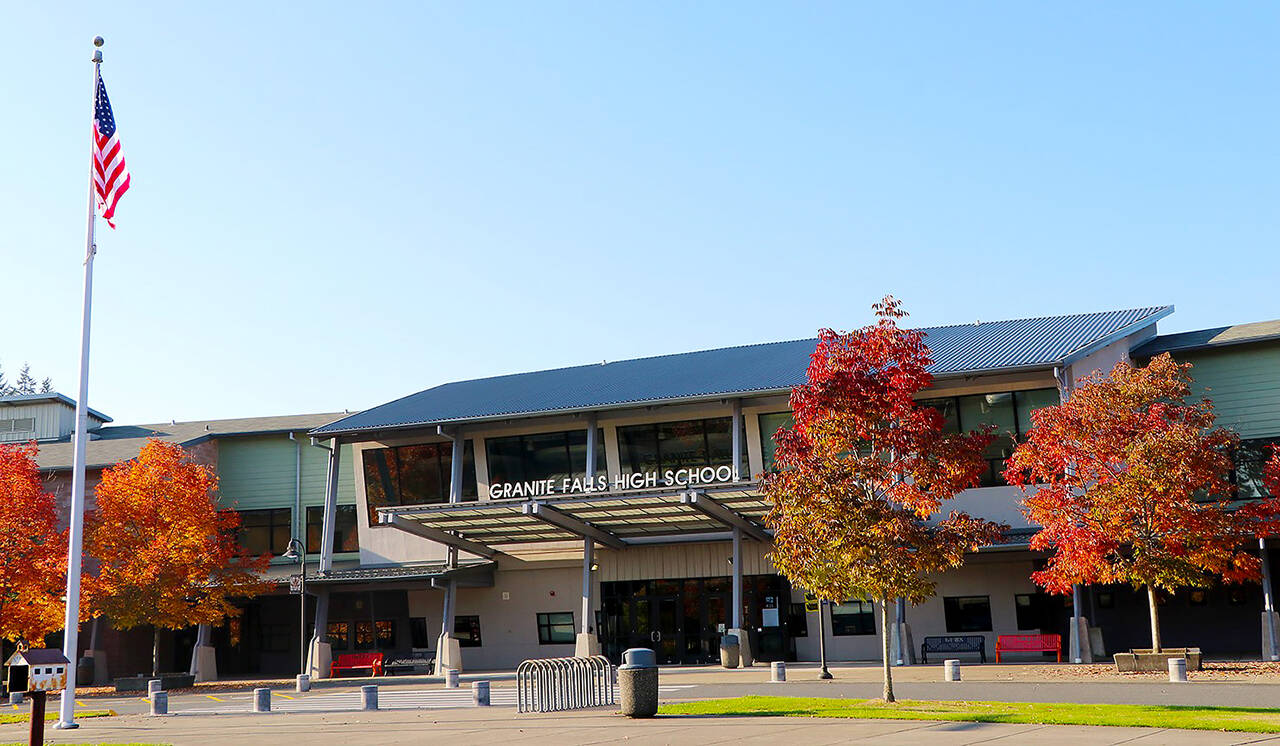EVERETT — Leaders of public school districts in Marysville, Sultan, Granite Falls and Stanwood will ask voters in April to approve critical funding measures they rejected in this month’s special election.
Those districts failed to pass multi-year property tax levies they rely on to pay for classroom staff, special education services, athletic programs, computers and facility improvements not covered by state dollars. Each was intended to replace one expiring at the end of 2022.
State law allows districts to try twice in a calendar year to pass them. April 26 is the next special election date.
Across Washington, voters rejected 17 education program and eight capital improvement levies in the Feb. 8 special election. Nine of those 25 losses occurred in districts in Snohomish County.
The Marysville School District ran each type of levy, and both lost by roughly 60%-40% margins. In response, the School Board slimmed down their proposals.
Directors set the tax rate for a four-year education and operations levy at $1.97 per $1,000 of assessed value, down from the $2.20 rate in the failed measure. This levy is the district’s second-largest funding source.
And the board slashed the rate for a proposed capital levy by more than half. It is now 26 cents per $1,000 of assessed value, rather than the 60 cents voters rejected. The lower rate would bring in roughly $12.5 million over the next four years, compared to $28.6 million in the failed measure.
In Sultan, voters turned down both the education and capital levies. The School Board there is putting both back on the ballot. Directors are leaving the property tax for education programs untouched as it produces 10% of revenue used to run the district day-to-day.
They are trimming the size of the capital levy. It has a tax rate of 95 cents per $1,000 of assessed value, 30 cents less than what directors sought before.
Granite Falls school leaders are re-running the same educational programs levy and capital improvement tax.
Voters turned down the Granite Falls education measure by a margin of 53.5% to 46.5%, with 1,605 voters opposed and 1,395 supporting.
The capital levy fell just short of passage, losing 50.4% to 49.6%. There were 1,491 votes cast in favor and 1,512 votes against.
As proposed, this proposition would generate $750,000 a year for the purchase of computers and other technology equipment for student learning, and it would make a range of improvements for safety and energy efficiency on campuses.
Stanwood-Camano will run the same four-year, $10.4 million capital improvement levy that was defeated in the February election. The district spans parts of Snohomish and Island counties.
“There is still a significant gap between what the state provides and what it costs to provide the services and programs Stanwood-Camano students need and our community expects,” Stanwood Superintendent Deborah Rumbaugh wrote in a letter to parents.
If passed, money would pay for computers and software, as well as a new roof at Cedarhome Elementary, new boilers at Elger Bay and Cedarhome elementaries and the replacing of fire sprinkler lines at Utsalady and Elger Bay elementaries.
Meanwhile, the Monroe School District, which also suffered defeat of two levies earlier this month, will wait until November’s general election to try again.
Directors said in a meeting last week that they need time to regain the community’s trust and confidence lost through months of turmoil marked by disputes on handling of racial incidents involving students, mask and vaccine mandates, and the conduct of the superintendent.
Jerry Cornfield: 360-352-8623; jcornfield@heraldnet.com; Twitter: @dospueblos.



